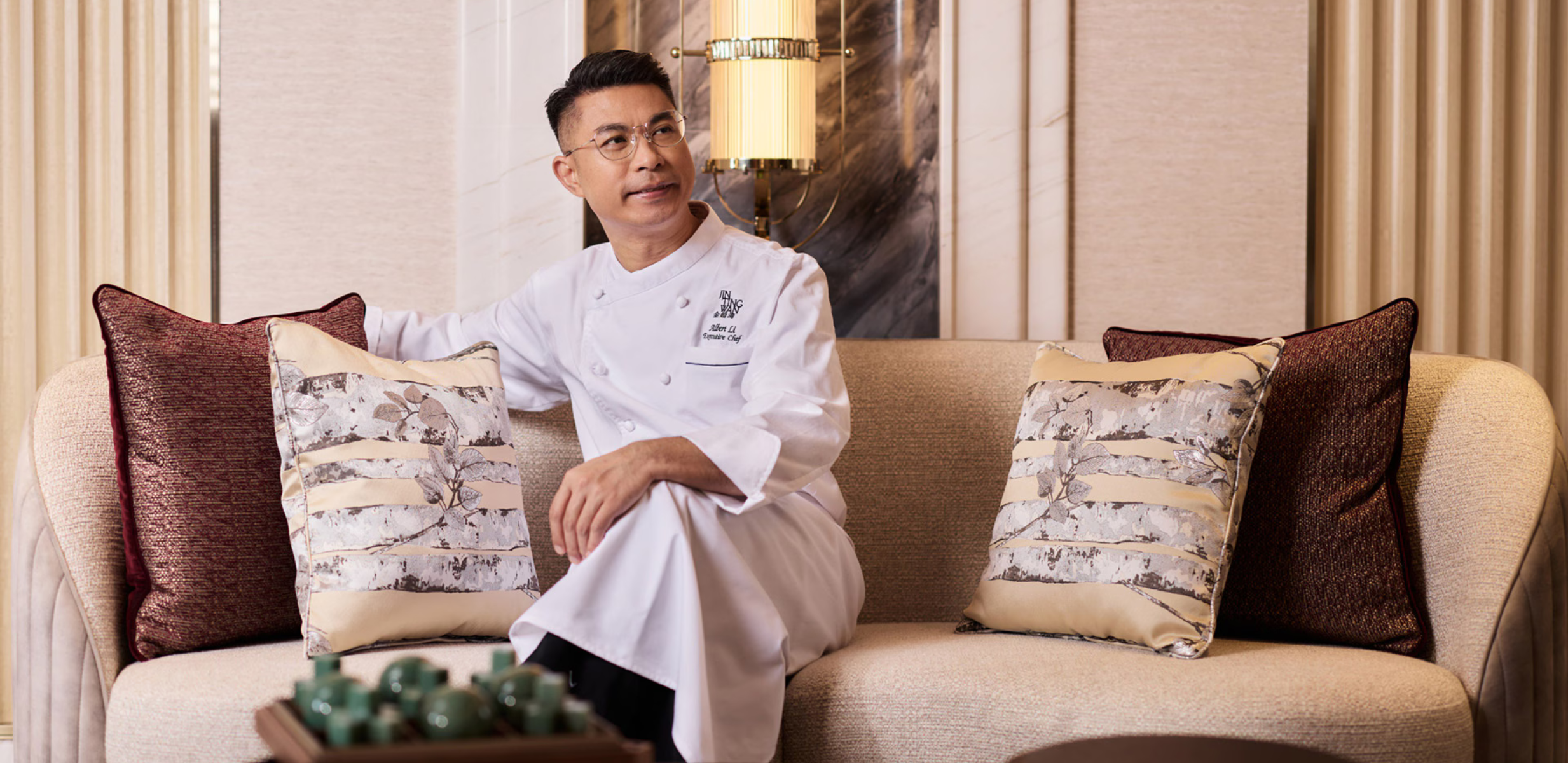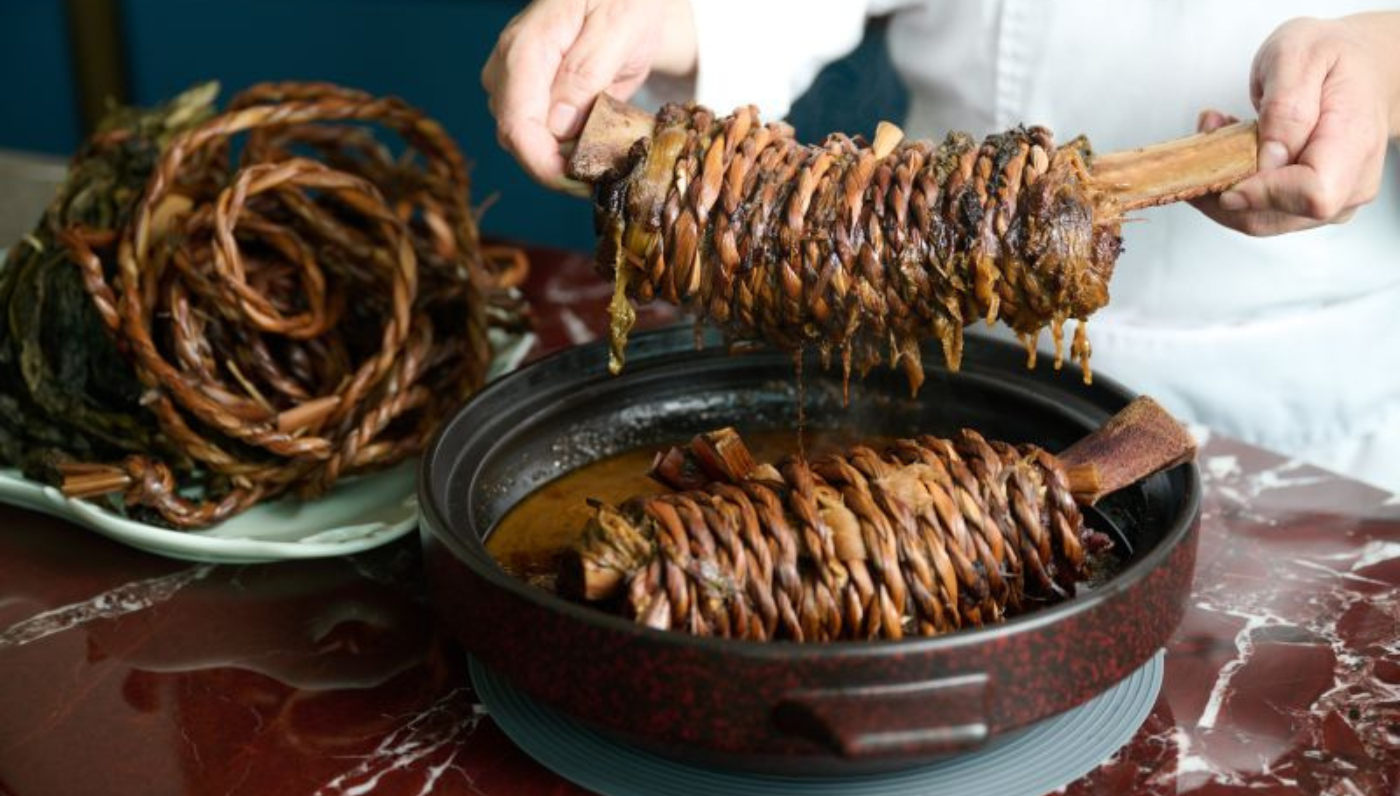
Marina Bay Sands has long been shorthand for spectacle. Now, with the unveiling of Jin Ting Wan, the resort adds a new tier to its US$1.75 billion reinvestment programme, this time in the form of a Cantonese restaurant 55 floors above Singapore.

The dining room, all Song Dynasty blues, gilded accents and dragonfly motifs, looks across both skyline and sea. At its helm is Chef Albert Li, whose Guangxi roots broaden the expected narrative of Cantonese food. His menu traces the regional nuances of Guangdong; from the delicacy of Teochew to the heartier Shunde and Hakka traditions, executed with the polish of a kitchen trained in Michelin-starred circles. Dishes such as lychee-wood-roasted pipa duck or jewel-like dim sum give familiar flavours a new cadence.

The culinary programme is matched by two liquid companions. In the Art Lounge, Head Tea Master Jacky Zhao Gang curates over 80 rare teas, served with a quiet ceremony that feels almost monastic. By contrast, Head Sommelier Joe Yang has assembled close to 100 bottles from China’s emerging fine-wine houses, a statement collection that situates the country firmly on the global map of viniculture.

What distinguishes Jin Ting Wan is not only its altitude, but also its role in a larger strategy. Marina Bay Sands, owned by Las Vegas Sands, has been steadily re-engineering itself for the post-pandemic traveller. The resort’s US$8 billion expansion, first announced in late 2024, broke ground in July 2025 and will run through 2030, with a planned opening in early 2031. Where once the draw was scale and spectacle, the new language is one of refinement: culture, gastronomy, design.

This mirrors a wider recalibration in luxury travel. Earlier this year, The Times of India noted that affluent travellers increasingly prioritise cultural immersion over ostentation, seeking experiences rooted in place rather than gilded sameness. Hospitality Net likewise highlighted how chefs across Asia are reviving neglected recipes and artisanal practices to meet a demand for deeper storytelling.
The pattern extends beyond Singapore. As The Guardian reported in January, heritage hotels in India’s Chettinad region have been reimagined as cultural flagships, transforming ancestral mansions into destinations that sustain local economies. In Singapore, Marina Bay Sands is making a parallel move: redefining luxury not through imported celebrity names, but through homegrown cultural narratives, refined and re-presented on the global stage.
In this sense, Jin Ting Wan is less a restaurant part of the wider picture in luxury. It marks a pivot in Asian hospitality towards heritage as luxury, demonstrating that the most compelling experiences are not spectacles to be consumed, but cultures to be engaged with.